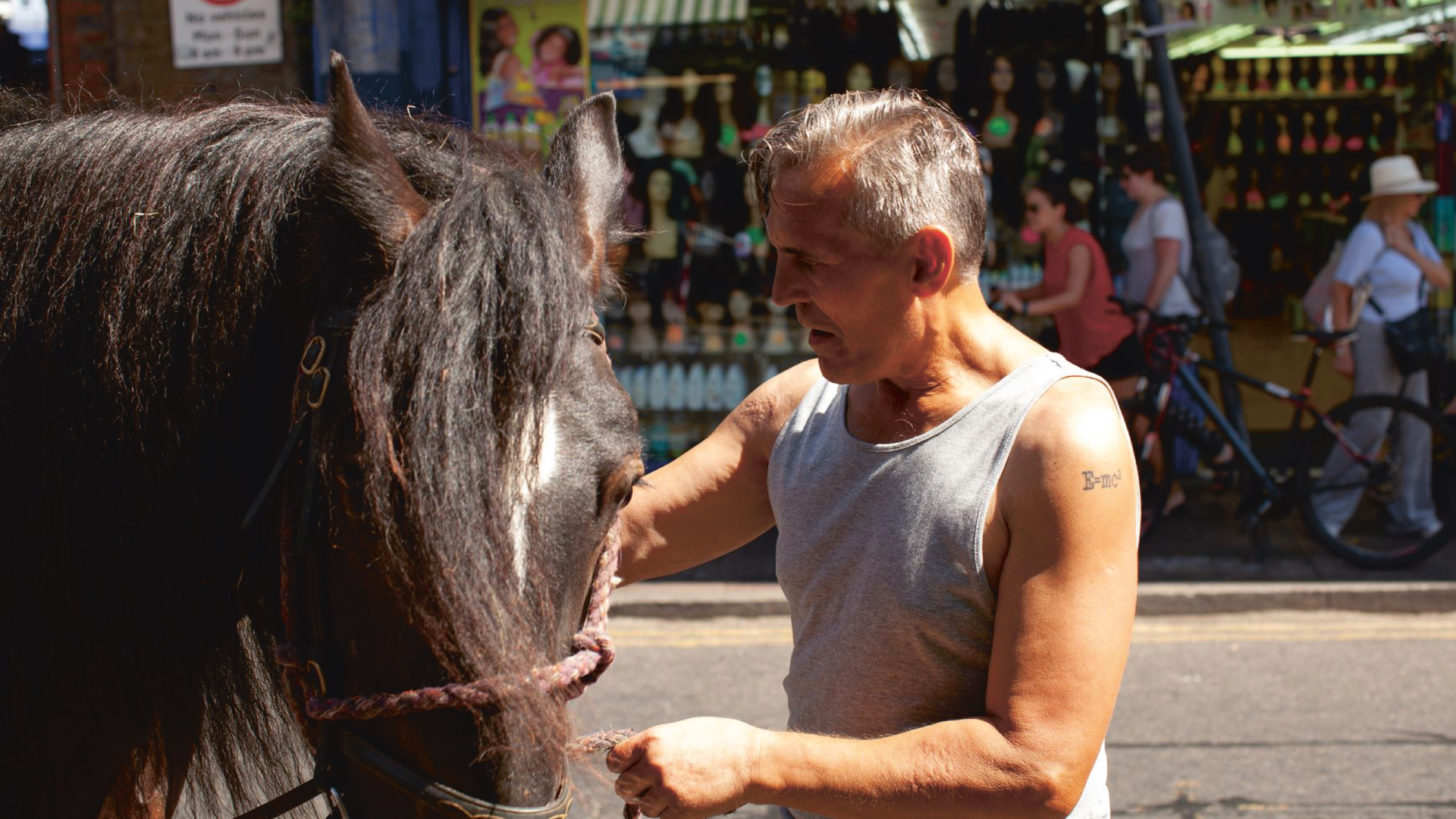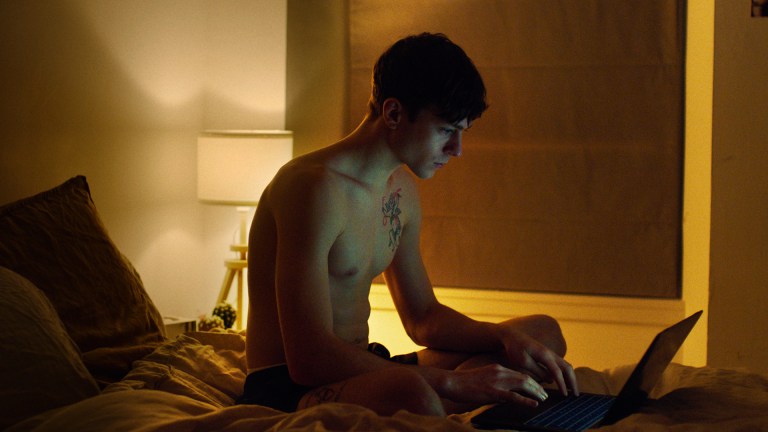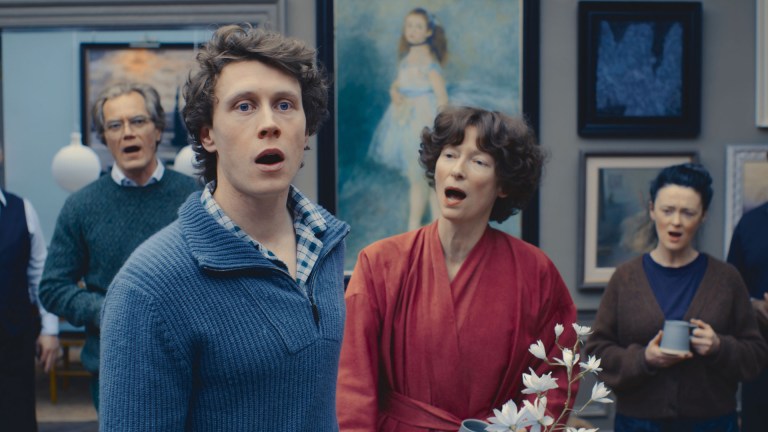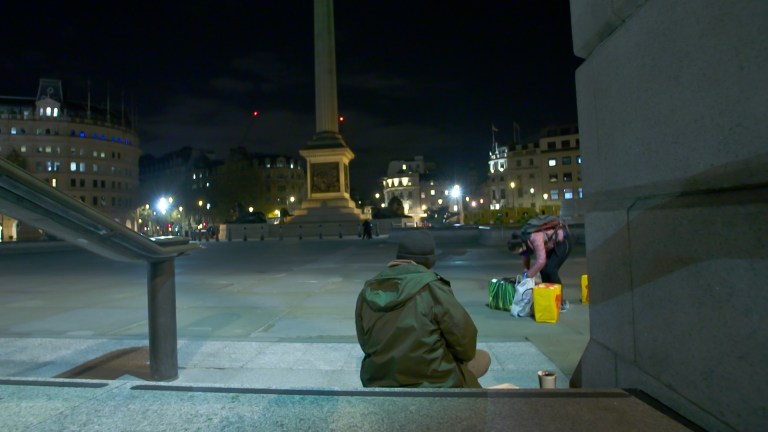“In our culture there’s an idea of what one is supposed to be instead of actually really understanding what they are. These are all false labels. They prevent us being able to see each other.”
Although the majority of actors had previously worked with Cardboard Citizens and have experienced homelessness, the film challenges labelling of them – or anybody – and expectations around the kind of stories they tell.
Over a period of five years, Zimmerman and Jackson worked with participants, asking universal questions about greed, hope, despair. When did we inflict pain on others that we regret? When did someone inflict pain on us? “These were really universal ideas that we grappled with,” Zimmerman says.
These conversations became collaborations developed together and turned into scenes or poetry or song, layered together to give an impressionistic view of life in the margins.
Zimmerman explains: “Some are really the real people’s stories but some stories are refractions of someone’s story overlapping with another story. Sometimes you need someone else to tell our story.”
“How do we facilitate other people’s stories to be told and value them properly?”
This collective method storytelling counters what Zimmerman describes as “mainstream empathy”, where we are supposed to feel sorry for somebody, but at distance, without being personally connected or becoming motivated to make change.
Advertising helps fund Big Issue’s mission to end poverty
“We’re all really different and you need to celebrate the differences. We can’t be an algorithm that talks to ourselves. You need to encounter each other. How do we facilitate other people’s stories to be told and value them properly?” Zimmerman continues.
“Inhabiting each other’s stories makes us understand and have empathy for each other. It makes a story owned by many people.”
The collective ownership is extended to audiences. Besides cinemas and festivals, Here For Life has toured around the country – taken to community centres, screened in prisons and shown to young disadvantaged people.
“I do think it’s important that films are able to reach people who are not in big cities, or who can’t go to the cinema. I grew up in a council estate on the outskirts of nowhere, as a kid we had a black-and-white TV and I used to see all these incredible films which were formative for me.”
A screening of the film will take place on March 11 with arts organisations Artsadmin and Artangel donating all profits from the event, held at Toynbee Studios, to The Big Issue’s efforts to end poverty. Zimmerman and one of the actors, Uncle Errol, will be present for a Q&A afterwards to continue the conversation.
Giving a platform to those whose voices are not usually heard or drowned out by market forces and modernisation is what the film (and this magazine!) tries to do with its radical reframing. “That’s why The Big Issue collaboration means a lot to me,” Zimmerman says.
Advertising helps fund Big Issue’s mission to end poverty
Our 2020 Impact Report
The Big Issue has given more than £1 million support to Big Issue vendors struggling due to the lockdown restrictions. To mark the significant milestone, we have published an impact report, documenting the seismic shift the organisation has undergone in the past 12 months.
View Report“The financialisation of cities is so destructive because instead of leaving buildings and memories and names, it just takes everything away.
“When change around people is slow it’s really good. It just happens, right? People come and go and things change. That’s why London is amazing but when it’s erased violently through city planning suddenly you no longer fit. You are literally made invisible and replaced by hoardings with stock photographs of what successful people supposedly look like.
“The film itself is not a polemic. It’s really full of poetry. We have a right to poetry. We show the beauty and we don’t shy away from the hardship but we are refusing to be seen as victims.”
Here for Life, certificate 15, will be screened on Wednesday March 11 at 7.30pm and we’re giving away five pairs of tickets. Find out how you could win here.










